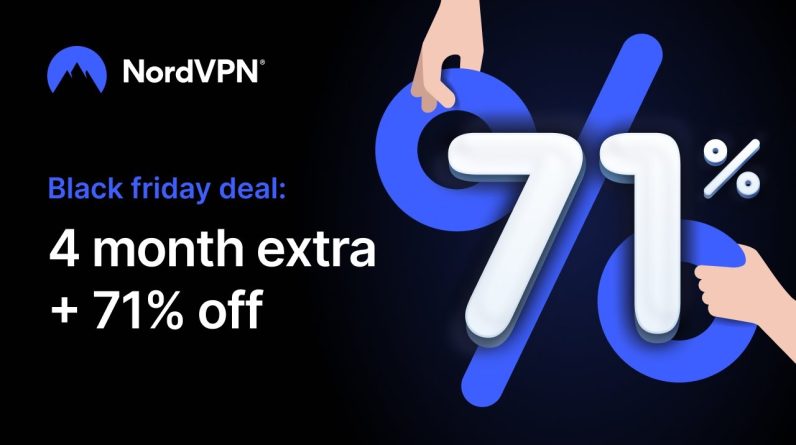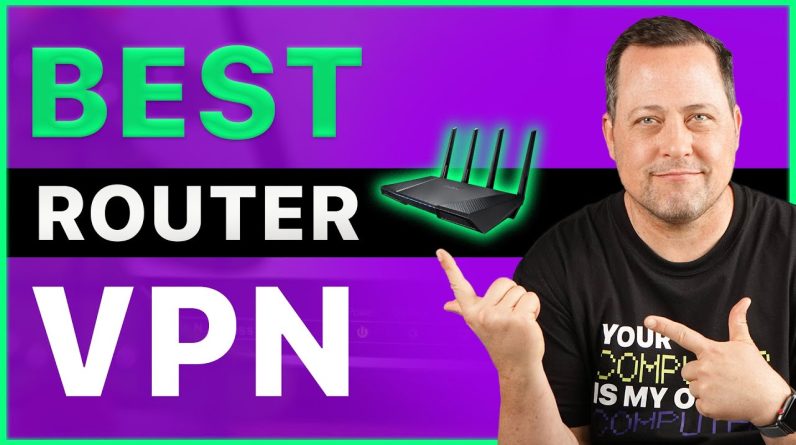 There are several types of VPN encryption. Some of them use SHA hash authentication. RSA-1204 and RSA-2048 are the most commonly used, although they’re not entirely uncrackable. SSTP and OpenVPN are less commonly used. SHA hash authentication has been known to be susceptible to attack, so you need to be cautious when choosing a VPN. You can also use AES Cipher to protect your traffic.
There are several types of VPN encryption. Some of them use SHA hash authentication. RSA-1204 and RSA-2048 are the most commonly used, although they’re not entirely uncrackable. SSTP and OpenVPN are less commonly used. SHA hash authentication has been known to be susceptible to attack, so you need to be cautious when choosing a VPN. You can also use AES Cipher to protect your traffic.
SHA hash authentication
SHA hash authentication is a key security measure for OpenVPN connections. It creates a unique fingerprint from a valid TLS certificate to authenticate the connection. This prevents attacks known as Man-in-the-Middle attacks, which divert a VPN connection from the provider to a hacker’s server. It can also protect data and prevent other unauthorized users from viewing that data.
Before the advent of computers, encryption techniques were simple substitutions of letters. Today, the NSA has mastered decrypting PPTP, L2TP, and IPsec traffic. OpenVPN seems to be relatively unscathed. Active attacks on encryption involve man-in-the-middle attacks. In this type of attack, the attacker manipulates data and identifies patterns in the manipulated data. SHA hash authentication is an effective means of identifying these active attacks. Nearly all major VPN providers include hash authentication into their protocols.
While SHA hash authentication is a critical security measure, it has some drawbacks. First, SHA-1 is not as secure as SHA-2. For example, modern browsers will warn users if a site uses SHA-1 encryption. Second, SHA-1 is vulnerable to hacking. This makes it crucial to migrate to a new service that uses an algorithm that is less vulnerable to attacks.
SHA is a standard encryption algorithm. It was created in 1995 as part of the US government project Capstone. SHA-0 was soon removed from circulation after NIST discovered vulnerabilities in it. SHA-1 was approved by the National Security Agency (NSA) and began to become the de facto standard for encryption. However, it never gained full confidence from security experts. In 2017, Computerworld magazine called SHA-1 “completely unsafe” and reported that it is possible to produce two.pdf files with the same SHA-1 signature. SHA-1 was eventually phased out and replaced by SHA-2.
RSA-1204 has been cracked
RSA-1204 has been cracked for VPN encryption. RSA-1204 is an old algorithm that was used to protect the internet for two decades. The NSA managed to crack this cipher and most VPN services moved on to more secure encryption. It offers larger assurance of data safety than RSA-1024, but it is not foolproof. Modern CPUs have the ability to crack the RSA algorithm.
Another common flaw in RSA encryption is that the private encryption keys used to encrypt the communication must be kept secret. Otherwise, the adversary could read the contents of the communications. Many companies and servers use one private key to secure their data, so if the key is compromised, all communications are exposed. This weakness was used by the NSA to collect data from the internet. If you are worried about your data security, look for other encryption methods, like ECDH.
Despite the widespread concerns, there is no need to panic. The NSA has not yet publicly admitted to cracking RSA encryption, so you should be safe. The NSA has been known to circumvent international encryption standards and add undetectable backdoors. In fact, the NSA has admitted to working with other companies to develop its own ciphers, which has made the industry’s standards less secure.
RSA-2048 is virtually uncrackable
A VPN uses asymmetric encryption to create a secure connection. Symmetric keys are then safely shared over the secure connection and used for the actual data transmission. This is the “VPN handshake” and the encryption used is called RSA. RSA is an acronym for Rivest-Shamir-Adleman, but there are other, more secure algorithms available. The RSA algorithm was first developed in 1988 and has since remained the most popular choice of many users. It utilizes a virtual unbreakable AES-256 bit key encryption algorithm and uses a 160-bit SHA1 hash algorithm.
RSA has many uses outside of vpn encryption. For example, it’s used in digital signing, code signing, and certificates. RSA-signed certificates can be authenticated by signing them with the private key of the owner. In addition, RSA-encrypted code is verified for integrity by using the owner’s private key. The recipient can compare the message hash to the signature hash to determine if it has been modified. RSA is considered a safe encryption algorithm when properly implemented and used. One of the biggest factors in ensuring the safety of RSA-encryption is the size of the key. The larger the key, the harder it is to crack.
RSA-2048 is an excellent choice for VPN encryption because the private key of a VPN is composed of two prime numbers. Since the private key is made of two prime numbers, the public key is also very long, so it’s easy to break the encryption. An RSA-encrypted key is typically 1024, 2048, or 4096 bits. In a world where hackers are increasingly targeting the VPN industry, RSA-2048 is an excellent choice for security.
SSTP
SSTP is a protocol designed for VPN connections, and is built into many popular Windows operating systems. While the secure socket tunneling protocol was launched for Windows Vista, it was made available for use on Windows 7, 8 and 10. Though Microsoft owns the SSTP protocol, it can be adapted to work on other major operating systems, such as MacOS and Linux. While it is not available for mobile platforms, such as iOS and Android, it is easy to configure on your computer.
SSTP uses the same mechanism for encryption as SSL, with the difference being that it supports an extensible message format. SSTP uses keying material generated during PPP authentication, which prevents the use of untrusted man-in-the-middle attacks. In addition to being a secure way to connect to the Internet, SSTP also ensures data integrity, as it uses certificates to encrypt data.
Though SSTP is a complex protocol that makes it difficult for some users to comprehend, it is a good option if you’re looking for fast browsing. After all, speed is the most important factor in VPN usage, so if you’re using a VPN to protect yourself and your privacy, speed is the first thing you need to consider. If it takes forever to access content or download files, you may be tempted to switch to another protocol.
IKEv2
IKEv2 VPN encryption consists of two components: the IKE daemon and the IPSec stack. The first encrypts your data using 256-bit encryption while the latter uses a PFS cipher. Both components use certificate-based authentication for security purposes. As for the latter, the IKE daemon runs in user space and the IPSec stack runs in kernel space. Using a VPN encryption protocol that uses both of these components improves your security by making it harder to hack into the network.
Using an IKEv2 VPN encryption service will protect your data while it passes through the internet. It uses IPSec’s security-assured key exchange to authenticate data packets during the connection. The IKEv2 protocol is particularly good at automatically reestablishing connections. It also supports the Mobility and Multihoming protocol (MDH) and is especially useful for cell phone users. It also offers higher encryption strength than its predecessors.
Another important advantage of IKEv2 VPN encryption is that it runs faster than other VPN protocols. It also has a more secure design and supports Extended Authentication Protocol. Whether or not it’s the best VPN for you depends on your preferences and your requirements. You’ll be able to secure your data with IKEv2 if you use an open source implementation. If you’re concerned about security, it’s better to use OpenVPN.
WireGuard
One of the best features of WireGuard vpn encryption is the fact that it is compatible with multiple endpoints, from a single laptop to a network of thousands. The WireGuard encryption protocol consists of a Cryptokey Routing Table (CRT), an association of public keys and allowed IPs. It can also handle multiple connections and encapsulate them inside of each other. In addition, it can support both IPv4 and IPv6.
As a result, WireGuard is a good fit for companies that implement BYOD policies. Because it allows remote workers to use any device they desire, WireGuard VPNs are a great fit for this type of corporate policy. The WireGuard VPN can be seamlessly integrated into local environments and cloud-based applications. It protects all of your resources in a unified way and has a global server array.
To ensure your security, WireGuard uses ChaCha20 symmetric encryption and Poly1305 for message authentication. The latter is more secure than AES, which is a common VPN encryption scheme. This technology is faster than AES, and it is a superior alternative for embedded CPU architectures. Additionally, WireGuard has a small attack surface compared to other popular encryption protocols, since it does not respond to unauthenticated packets.
Also read ExpressVPN Review – Is it Right For You?







